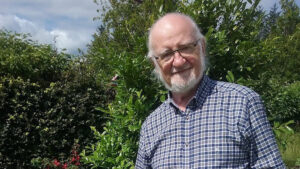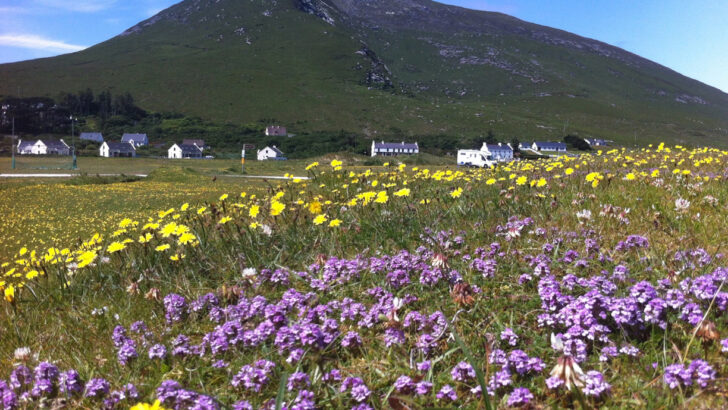Thomas McCarthy
* * *
Song of the Goldfinch,
by John F. Deane
(Veritas, €19.99 pb/ £17.50pb)
Have we forgotten how universal our secure and graceful Irish Catholic life once was? Well, that is, as the song goes, if your Dad was rich and your Mom was beautiful – true wealth, of course, was then to have a ‘respectable’ father and a devout mother.
In this sense, John F. Deane, future poet and onetime candidate for the priesthood, had struck gold as a boy. His father ran the social welfare office and his mother was a teacher in one of the most beautiful places on God’s earth, Achill Island.
Dreamtime
This was the late 1940s, an Irish dreamtime of comely maidens and frugal missionary priests. Socially, his childhood was an idyllic beginning; such origins in a secure Catholic homestead would produce children who were mentally prepared to inherit and command Ireland.
And exceptional children such as poet John F. Deane would go on to proclaim Ireland to literary Europe: “And so, baptised…. I was a Christian, a couple of days into my being, a Catholic, a Roman Catholic. I inhaled all time and cosmos at that moment. … I grew, as it used to be said, and waxed strong in that air and with each breath, in the faith that was handed to me, with gentleness, but with emphasis.”
That word ‘emphasis’ is brilliantly chosen. Song of the Goldfinch is the story of emphatic faith, of life lived in the boundless certainties of Christian teaching. “The Christian faith is a wonderful offering,” he goes on, “oceans-wide and deep, sky-pure and rich with the fragrances of earth.”
Here in these pages he has written the story of that spiritual unfolding, the journey from instinctive and inherited faith into seminary and adulthood. As a child in Achill he had served at Mass, and was even then profoundly sensitive to Catholic atmospheres: “when the incense was smoking perfectly and when the gilded monstrance was hoisted into the light and the priest intoned his goldfinch song, then the world was gilded too, and eyes and ears and something deep inside the heart were fully satisfied.”
Sensitivity
The clairvoyant sensitivity that he brings to these atmospheres is one of the joys of his book. This Achill faith led him to poetry as surely as childhood formation had propelled him into the seminary. Faith and poetry were inextricably linked.
He spent five years boarding at Mungret College, a place described with pity and lively good humour. Then, blindly following the example of his brother Declan, who was two years into a noviciate with the Jesuits at Emo Court, the young poet found himself with the Holy Ghost Fathers in Co. Tipperary: “And we were 48 young men, innocent and wide-eyed, perhaps amongst the very last large group in this country to have entered a noviciate of missionary fathers.”
The five years of this noviciate, moving from Tipperary to Kimmage to study English and French at UCD, are wonderfully described. They were the years when he formed a differentiated faith and lost his vocation – or, rather, admitted that he didn’t have one.
Hugely influenced by Pierre Teilhard de Chardin’s Hymn of the Universe, he developed a more complex, personal Catholic faith, and this faith was deepened by his writing a Master’s thesis on the Jesuit poet Gerard Manley Hopkins.
Song of the Goldfinch, then, is the lyrical memoir of a rare being in our humanist world, a Catholic poet.

Quest
His is a searching quest, from the severities of St Augustine to all that is simply “done by mankind with a good heart”. The life he describes is best expressed in this wonderful insight: “the poem is an epiphany, a little eucharist of the Word”. The epiphanies and songs of faith in this book have brought John F. Deane to Francis, both the saint of Assisi and the present Holy Father. In writing it all down the poet has created a wonder.


 A vision of Achill Island in the springtime of childhood, a window on the cosmos.
A vision of Achill Island in the springtime of childhood, a window on the cosmos. 